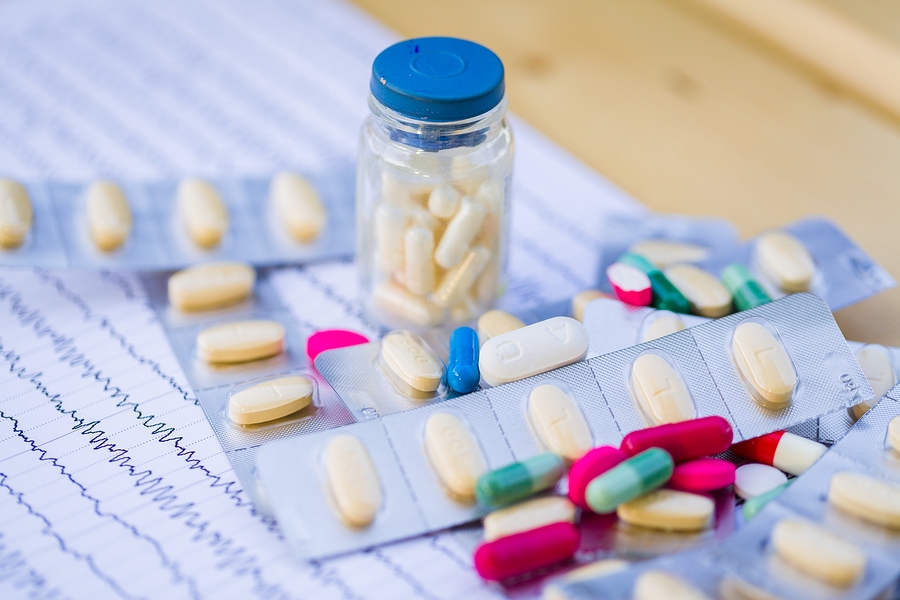
Prescription Drugs, Driving, and Traumatic Brain Injuries in Florida
 The relationship between driving, prescription drugs, and traumatic brain injuries continues to be complex. Motor vehicle accidents are one of the leading causes of traumatic brain injuries (TBIs) across the nation. Florida’s latest “Traffic Crash Facts Annual Report” reports that more than 900 crashes in 2016 involved drug use of some sort, not including crashes where both drugs and alcohol were present.
The relationship between driving, prescription drugs, and traumatic brain injuries continues to be complex. Motor vehicle accidents are one of the leading causes of traumatic brain injuries (TBIs) across the nation. Florida’s latest “Traffic Crash Facts Annual Report” reports that more than 900 crashes in 2016 involved drug use of some sort, not including crashes where both drugs and alcohol were present.
A 2011 study looked at the role of prescription drugs in motor vehicle crashes and found that 61.5% of those involved in crashes that entered a trauma center in Baltimore, Maryland were taking some kind of prescription. Florida leads the country in auto crashes, but data that distinguishes between illicit drug use and prescription drug use isn’t available. Experts, however, suggest that the pattern in Maryland is not all that different from other states. Regardless, many prescription drugs and driving do not mix.
TBIs, prescription drugs, and driving come together in two relatively common circumstances. In one, a person may have sustained a TBI because someone else was driving under the influence of prescription drugs and caused an accident. In another, those with a TBI often who have to take prescription drugs as a result of their injury can put others at risk when they get behind the wheel.
If you or a loved one has sustained a TBI because a driver was using prescription drugs or have been accused of negligence because you were taking prescription drugs as a result of a traumatic brain injury, consult with an experienced attorney as soon as possible to learn about your rights.
What Prescription Drugs Are Found in Drivers Who Get in Car Accidents?
Drivers under the influence of prescription drugs may have a wide variety of substances in their body when they are involved in a car accident. It is important to note that alcohol increases the intensity of physical symptoms of many prescription drugs. You can find warnings about alcohol interactions on the label of a medicine bottle or on the information sheet a pharmacist gives you about a prescription you’ve filled. Even one glass of wine with prescription drugs may lead to disaster when behind the wheel.
The most common prescription drugs found in impaired drivers include:
- Antidepressants that include big name drugs like Zoloft, Paxil, and Prozac, and tricyclic antidepressants such as doxepin and amoxepine.
- Opioids that include pain relievers such as oxycodone (Oxycontin, Percocet), hydrocodone (Vicodin), codeine, fentanyl, and more.
- ADHD psychotropics that include stimulants such as Ritalin, Adderall, and Strattera.
- Benzodiazepines that include sleeping aids such as Ambien, Lunesta, and Sonata.
- Marijuana has been found in many impaired drivers, but it is difficult to distinguish between recreational use and medicinal use. Medicinal marijuana is legal in Florida, but it does impair driving.
Drugged Driving in Florida
While it’s common knowledge that driving under the influence (DUI) of alcohol or illegal drugs is a criminal offense in Florida, many people do not realize that driving under the influence of prescription drugs carries the same penalties. Under Florida Statute 316.193, a person is guilty of driving under the influence and subject to punishment, such as jail time or fines, if they are under the influence of any chemicals that are listed in Florida Statute 877.11. According to this law, substances that may lead to a DUI include:
“…any compound, liquid, or chemical containing toluol, hexane, trichloroethylene, acetone, toluene, ethyl acetate, methyl ethyl ketone, trichloroethane, isopropanol, methyl isobutyl ketone, ethylene glycol monomethyl ether acetate, cyclohexanone, nitrous oxide, diethyl ether, alkyl nitrites (butyl nitrite), or any similar substance for the purpose of inducing a condition of intoxication or which distorts or disturbs the auditory, visual, or mental processes.”
This means that even if someone has a legal prescription, they are still operating a vehicle illegally when they take certain prescription drugs if it impairs their normal functions, which include vision, hearing, walking, judging distances, and more. If an impaired person causes an accident and/or fatality while driving, they may be liable for damages they cause, and their ability to recover damages from others may be reduced.
Driving After a Traumatic Brain Injury
Those who have sustained a mild to severe TBI often want to regain their ability to drive as soon as possible, yet doctors don’t have standardized guidelines to approve their return to the road. Instead, clinicians evaluate TBI patients on a case-by-case basis and may not always make the right decision. Traumatic brain injuries result in physical, cognitive, and emotional symptoms that interfere with one’s ability to drive. Approximately 50-70% of drivers with moderate to severe TBIs return to the road at some point after sustaining their injury. Consider this with the fact that 50% of patients return to the hospital at least once, and that those with TBIs are 50 times more likely to have seizures according to the CDC. A TBI patient who is back on the road may already be a danger before adding prescriptions to the mix.
If a doctor releases a TBI patient to drive too early or prescribes drugs without giving the proper information about driving, and the patient gets in a motor vehicle accident, the doctor and associated facilities may also be held liable for damages. Driving after a TBI that leaves the driver impaired can be as dangerous as driving under the influence. Those who have sustained a TBI must take special care to protect themselves and others on the road from more injury.
Tampa Bay, Florida, Traumatic Brain Injury Attorney
When prescription drugs, driving, and traumatic brain injuries collide, they can create a situation that requires a well-rounded personal injury attorney who has experience with motor vehicle accidents, traumatic brain injury cases, and even medical malpractice. If you have sustained a TBI in a car accident because the driver was impaired by prescription drugs, or if you were under the influence of prescriptions drugs because of your TBI at the time of an accident, contact an experienced lawyer who will navigate the different areas of personal injury law to help ensure you get the best possible outcome for your situation, while you focus on your rehabilitation and recovery.
Contact the skilled attorneys at Dolman Law Group in Tampa Bay at (727) 451-6900 for a free consultation to discuss the merits of your case.
Dolman Law Group
800 North Belcher Road
Clearwater, FL 33765
727-451-6900
https://www.dolmanlaw.com/florida-brain-injury-lawyer/
Google+




